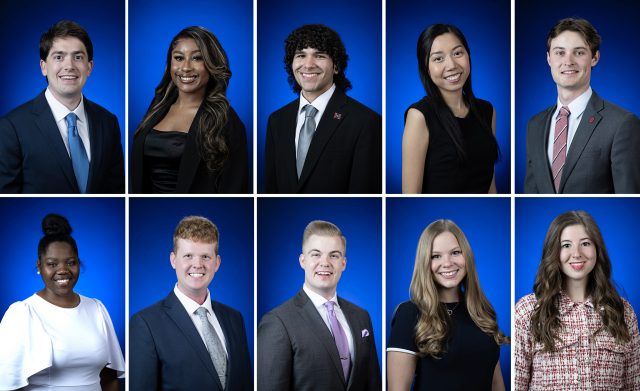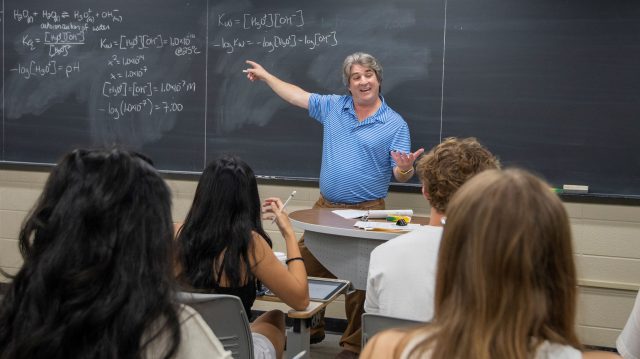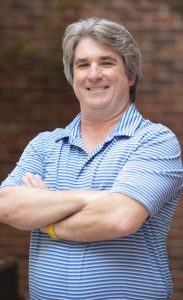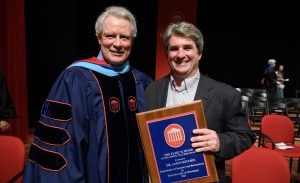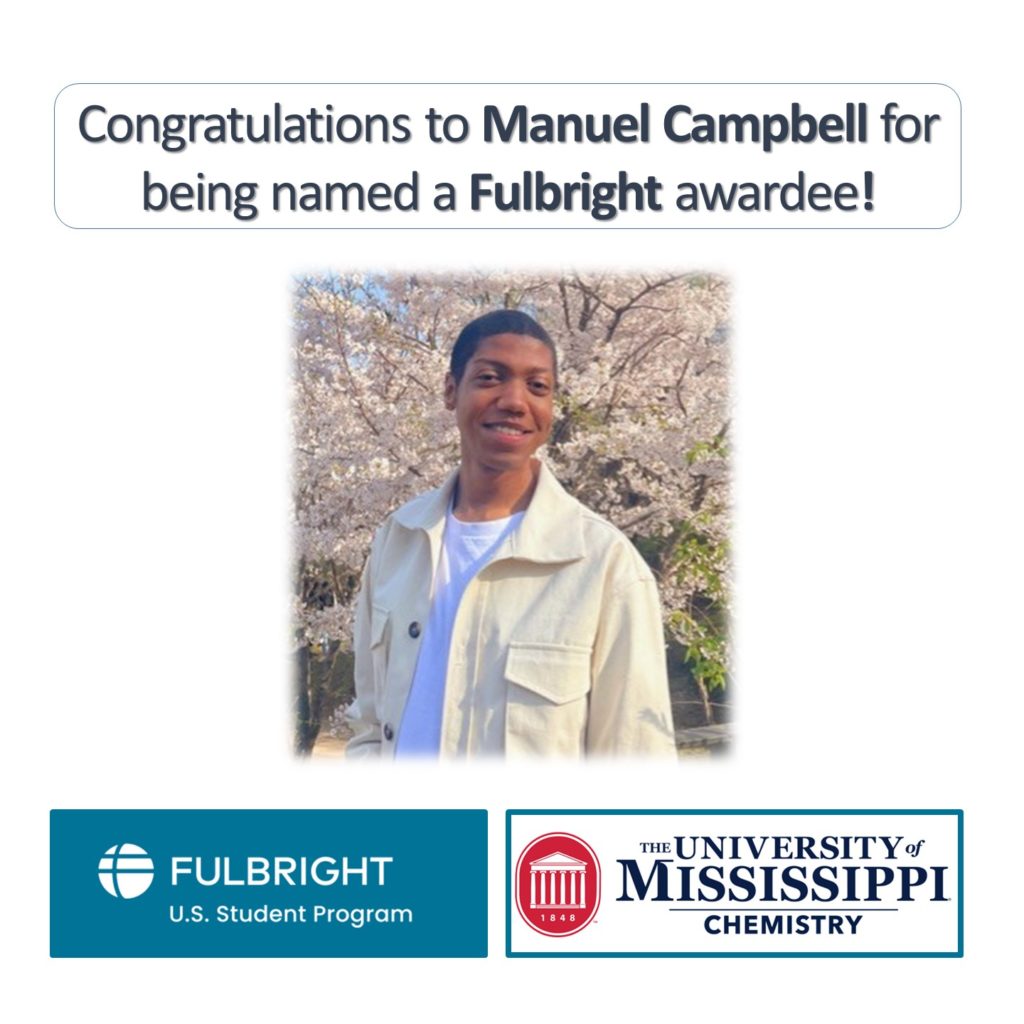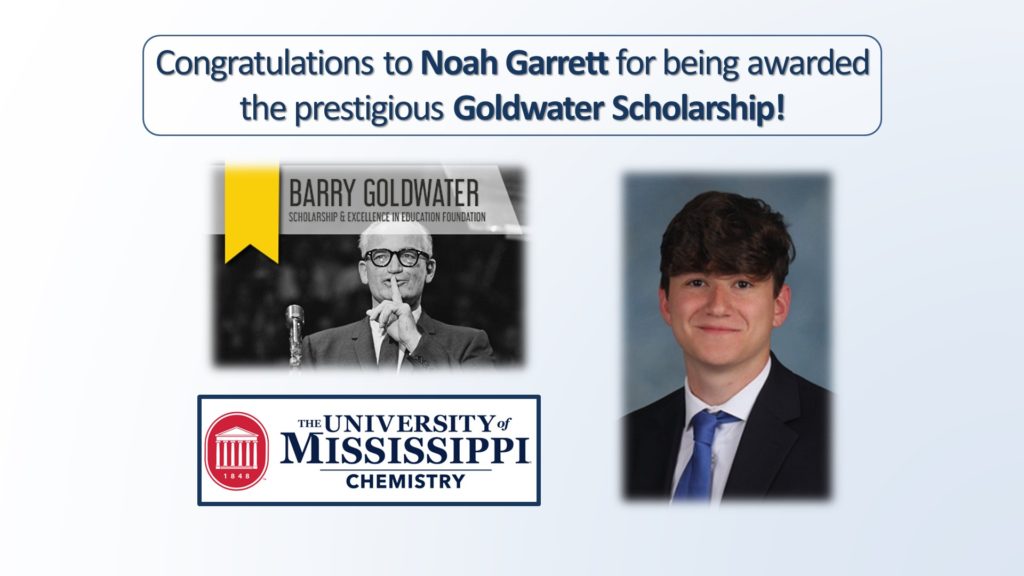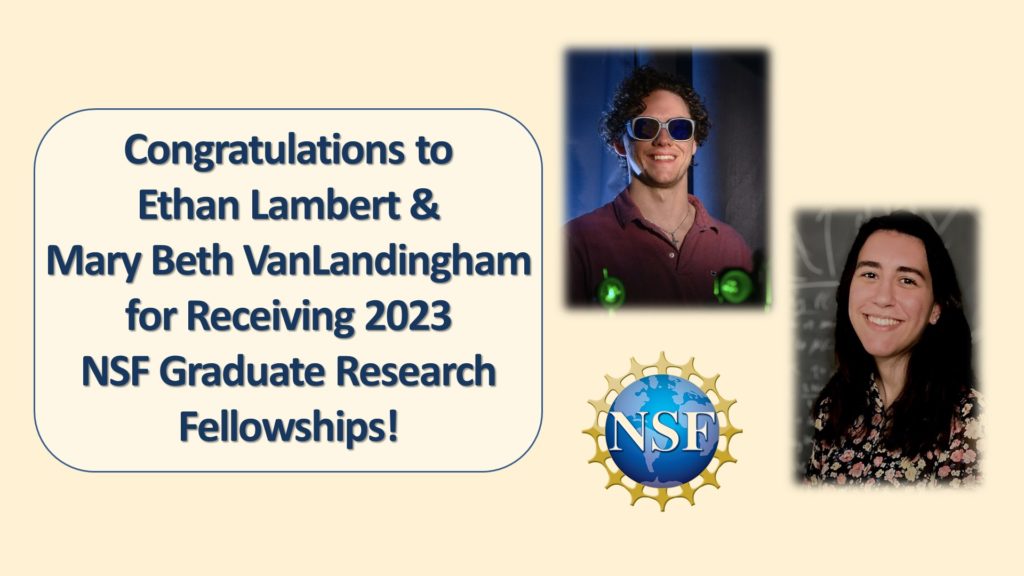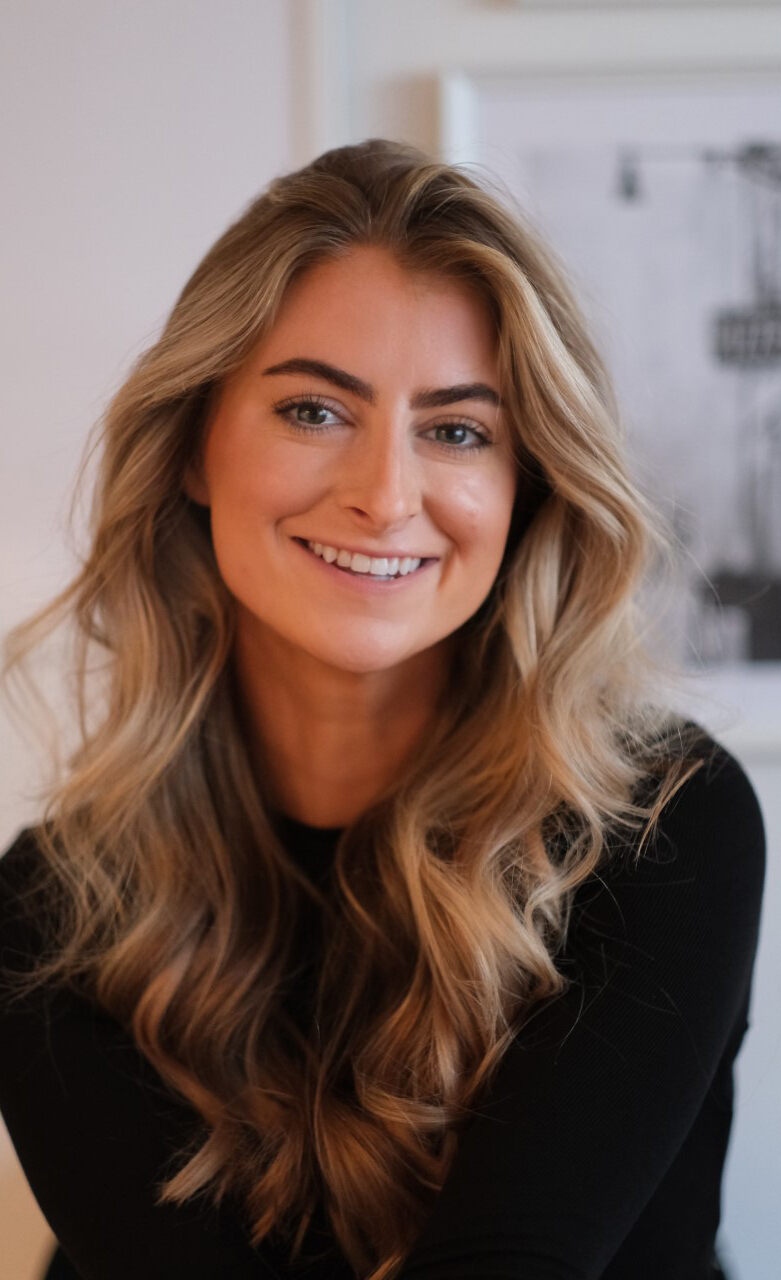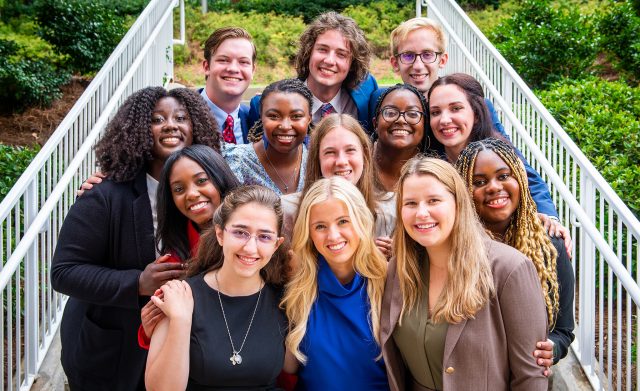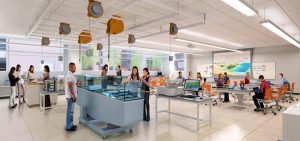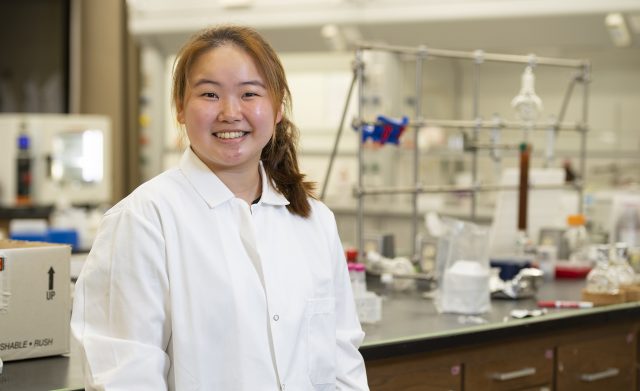OB-GYN Resident’s Potential Is ‘Skiey’ High

Skiey Hardin changed her career ambitions from homicide detective to physician after graduating from college. There’s certainly no crime in that.
There’s also no crime in providing reproductive care to people who need it, she believes.
Hardin, who is in her second year as an OB-GYN resident at RUSH University, is passionate about reproductive rights and gender-affirming care, especially for people from underserved communities. She recently talked about the role her upbringing played in her career choice, the current state of abortion rights and the comradery among the OB-GYN residents at RUSH.
Tell us about your background.
Skiey Hardin: I was born and raised in New Augusta, Mississippi, a small town that has only one traffic light and lots of trees. I then went to the University of Mississippi, where I received an undergraduate degree in forensic chemistry. I always wanted to be a homicide detective or something similar.
But that changed after an internship at the Mississippi Forensics Laboratory, where I got to spend some time in the morgue. I thought, “This is really cool.” So I then wanted to work in forensic pathology, which you need a medical degree for. I switched gears and went to med school at the University of Mississippi, but I really hated pathology. I decided to remain open-minded at that point.
I really loved OB-GYN when I did my med school clinical rotations. That’s what I decided to pursue, and that’s how I ended up at RUSH.
What else motivated you to pursue a career in medicine?
SH: With OB-GYN, I was partly motivated by Mississippi’s high rate of teen pregnancy. I grew up in an area where there are a lot of teen pregnancies, and the majority of those teen moms are African American. And during medical school, a lot of the patients I saw on my rotation were also African American, so I felt a special connection to them. I come from an area where we don’t really talk about sexual education, so I felt like I owed it to my community to be in a specialty that allowed me to help educate them.
I saw a lot of myself in the patients I was seeing. I wasn’t a teen mom, but I related to their backgrounds. Black women have the highest maternal mortality rate, and I want to be part of changing that.
What are your thoughts on the current state of abortion rights?
SH: When Roe v. Wade was overturned, our OB-GYN group was very emotional and sad. But the saddest part was nobody was surprised.
It’s going to be a very challenging for providers across the nation to provide effective care to their patients. Physicians will be afraid to lose their license and won’t really know what to do. Their morale will be challenged.
I’m glad I’m currently in a state that prioritizes women’s health and finds it important to continue to provide abortion care. I’m glad I’m getting the training but sad that I might one day be in a state where I can’t provide these services. That’s really hard to explain to patients. Patients already feel very judged when they get an abortion. I think that judgment is going to increase, which is going to play a role on people’s mental health.
There are so many reasons that people get abortions. It’s not all just elective. We as a nation need to dig a little deeper and do more research into the need for abortion care before we write it off and judge it. Sometimes people need abortions to save their own lives, and we need to prioritize the lives of patients as much as we prioritize the life of a fetus.
Why did you choose RUSH for your residency training?
SH: I always thought I would stay in the South for my residency. But I have a friend who is also doing their residency in Chicago, and she convinced me to look more closely at the area. I was reluctant to live in a large city, but my virtual recruitment during the earlier days of the COVID-19 pandemic changed my mind.
I had to rely a lot on social media to learn about different institutions, because med students couldn’t make in-person visits at the time. On RUSH’s OB-GYN Instagram page, there were photos of residents hanging out — not just at work but also outside of work. Hanging out at work is one thing, but if you’re hanging out outside of work, that’s a choice. I wanted to be in a program where the people I worked with felt like family. That’s something that sets our program apart. We’re really good friends.
And when I interviewed here, I talked to the program director, Sloane York. We got into a topic she was very passionate about. I was passionate about it too. I remember telling myself, “Wow, I really need to be in that program.”
How do you feel about Chicago now that you’ve been here for a bit?
SH: My very first time in Chicago was when I moved here for my residency, and it has been amazing. I’ve been able to meet so many friends. I have a dog, and this is a very dog-friendly city. There is always something going on in Chicago.
I feel like you can be whoever you want to be in this city. There’s not a lot of judgment here, and I love that. I’m very passionate about the LGBTQ community, and I want to work in gender-affirmative surgery. This is a perfect city to support my goals.
How do you see your career playing out after your residency?
SH: I plan to do a fellowship in pelvic reconstructive surgery. I really want to work with the LGBTQ community. And a big part of that is gender-affirmation surgery and care. I know RUSH is moving toward doing a lot more with affirming care, so I’m excited to be part of that.
What advice would you give to someone who might be following a similar path?
SH: I would tell them not to doubt yourself. I grew up with a lot of insecurities because I came from such a small town. I didn’t feel like my educational foundation was as strong as a lot of my peers even though I performed as well as everyone around me.
So always shoot for the stars. You are your biggest limitation, so if there’s something that you want to do, just go for it. It’s OK to fail. Just pick yourself back up and keep going. Lean on supportive people around you. I always wanted to figure things out by myself, so I didn’t utilize my support system as much as I should have.
And I would tell myself a million times that you’re amazing no matter what anyone ever says to you. As long as you think you’re amazing, then you are amazing. You will accomplish anything that you put your mind to because you’re special and one of a kind.
